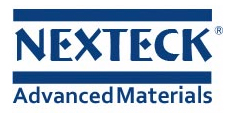Indium is a chemical element with chemical symbol In and atomic number 49. This rare, soft, malleable and easily fusible poor metal is chemically similar to aluminium or gallium but more closely resembles zinc (zinc ores are also the primary source of this metal). Its current primary application is to form transparent electrodes from indium tin oxide in liquid crystal displays. It is widely used in thin-films to form lubricated layers (during World War II it was widely used to coat bearings in high-performance aircraft). It's also used for making particularly low melting point alloys, and is a component in some lead-free solders.
Indium is a very soft, silvery-white, relatively rare true metal with a bright luster. As a pure metal indium emits a high-pitched "cry", when it is bent. Both gallium and indium are able to wet glass.
One unusual property of indium is that its most common isotope is slightly radioactive; it very slowly decays by beta emission to tin. This radioactivity is not considered hazardous, mainly because its half-life is 4.41×1014 years, four orders of magnitude larger than the age of the universe and nearly 50,000 times longer than that of natural thorium. Unlike its period 5 neighbor cadmium, indium is not a notorious cumulative poison.
| Symbol | In | Density (20°C)/gcm3 | 7.3, |
| Atomic number | 49 | Melting point / °C | 156.61 |
| No. of naturally occurring isotopes | 2 | Boiling point / C | 2080 |
| Atomic weight | 114.82 | ΔHfus/kJmol-1 | 3.26 |
| Electronic configuration | [Kr]4d105s25p1 | ΔHvap/kJmol-1 | 231.8 |
| Metal radius/pm | 167 | ΔHf(monoatomic gas)/kJmol-1 | 243.1 |
| Ionic radius(6-coordinate)/pm III | 80 | Electronegativity χ | 1.7 |
| Ionic radius(6-coordinate)/pm I | 140 | Electrical resistivity (20°C)/μohm cm | 8.37 |
| Ionization energy/kJmol I | 558.2 | Eo(M3+(aq)+e- →M+(aq))/V | -0.34 |
| Ionization energy/kJmol II | 1820.2 | Eo(M+(aq)+e- →M+(aq))/V | -0.18 |
| Ionization energy/kJmol III | 2704 | Hardness (Mohs) | 1.2 |
| Temperature (oC) @Vap. Pressure | Techniques | Remarks | |||||
| 10-8Torr | 10-6Torr | 10-4Torr | Electron Beam | Crucible | Coil | Boat | |
| 487 | 597 | 742 | Excellent, Mo liner required | Graphite & Al2O3 | Tungsten | Tungsten & Molybdenum | Wets tungsten & Copper; use Molybdenum liner in guns. |
| In | ||||
| Sputtering Targets | ||||
| Matierial | Symbol | Atomic Number | Thermal Conductivity | Theoretical Density |
| W/m.K | g/cc | |||
| Indium_In | In | 49 | 82 | 7.3 |
| ITO | In2O3/SnO2 90/10 wt % | - | - | - |
| Evaporation Materials | ||||
| Matierial | Symbol | Atomic Number | Thermal Conductivity | Theoretical Density |
| W/m.K | g/cc | |||
| In(pellets) | In | 49 | 82 | 7.3 |
| ITO ( pieces ) | In2O3/SnO2 90/10 wt % | - | - | - |
Below is the periodic table of chemical elements.The elements in red are the ones Nexteck's product contain. Click them, you will come to the details.

NEXTECK (CHINA) - SHENZHEN
Tower A1001, Galaxy Century, No 3069, CaiTian Rd, Futian District, Shenzhen, China
Zip Code: 518026
Tel: +86-755-8256-1631
Fax:+86-755-8256-1691
E-mail:[email protected]
PRODUCTION PLANT
Wenchuan Rd, Alley 5300/1, Baoshan District, Shanghai, China
Zip Code: 200942
Tel: +86-21-3638-0189
Fax: +86-21-3638-0109
E-mail: [email protected]